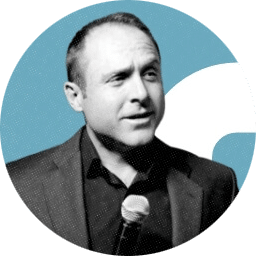Join us for Part 1 of our series on How to Beat Imposter Syndrome, where we delve into the case study of an accomplished professional battling with feelings of inadequacy despite her success. Imposter Syndrome, a prevalent phenomenon affecting individuals across various fields, can lead to a persistent fear of being exposed as a fraud. In this episode, we explore the origins of Imposter Syndrome from an evolutionary perspective, its connection to trauma, and its widespread prevalence in society.
Imposter Syndrome - A Case Study

Sitting across the table from this incredibly successful and accomplished woman it was hard to believe what she was telling me. Despite being responsible for overseeing an industry group responsible for billions in revenue and having the full faith and confidence of other senior leaders, she had one very big problem. She was living in the midst of a daily battle against the power of imposter syndrome. No matter what her accomplishments she lived with a deep sense that she was out of her league and that sooner or later she was going to be found out or exposed and that when that happened she would lose everything.
The good news for you, regarding her story, is that it is incredibly common. If you find that you also struggle with the creeping anxiety of imposter syndrome, then have hope, you are not alone. You are dealing with a very human experience that is shared by vast numbers of people in an incredibly diverse range of workplaces, teams and social settings. In this article I want to share with you some insights that I have learned about imposter syndrome after more than 30 years as a global speaker, consultant and entrepreneur. In fact, not only will I share with you some practical things you can actually do but I also want to take you into my own story about the first time I delivered a keynote to more than 10,000 people. As the MC finished their introduction that day, there was nowhere to hide. The imposter syndrome I had lived with for many years was about to either end my career or push me forward.
As a result of that experience, and many others like it, imposter syndrome, for me, is not just an important business and personal development topic. It is something I have lived with personally and it’s also something that I really want to help you or the people you lead learn to understand and overcome.
What Is Imposter Syndrome?

At its most basic, imposter syndrome is simply the deeply held belief and the feelings that follow from that belief, that you are somehow inadequate for whatever significant task that you are facing. It’s the sense that very soon your secret is about to be found out. It’s a creeping fear that when your inadequacy is finally ‘discovered’ then you will lose whatever role or status you have worked so hard to attain. It’s the sense that the people around you are all competent but you are the useless outlier who is going to bring the whole house crashing down.
For most of us, imposter syndrome tends to show up in the workplace but it can also manifest in other environments. In fact, it can show up in a vast array of social settings including churches, volunteer organizations and more. Any place where humans gather in some kind of organized setting can end up being a place where imposter syndrome can manifest.
For our purposes in this article we will focus mainly on its impact upon our work lives. Why? It’s because our careers tend to be places where we invest a large amount of our emotional and psychological energy. Our workplace tends to be an environment that has significant implications for our ability to succeed financially in life, get promoted and develop our unique talents and gifts. Most workplaces are also, in one way or another, outcomes focused. They tend to be places where people notice your ability to do your job or to struggle to do your job.
Also, as our work lives take on more responsibility and status there can be higher stakes as well as more politics and factionalism. Or, at the other end of the spectrum, as we start our careers, we can carry the sense that everyone is watching us and that our inexperience and inadequacies are going to show up and consign us to a life in the mail room.
No matter how imposter syndrome shows up for you, understand this, you are not alone! You are a human person surrounded by other human persons and no matter what anyone tells you we all carry doubts, uncertainties and fears. Imposter syndrome tends to differ only by degree. Some of us, as we will see below, carry wounds and issues from our distant past that can make us more susceptible, but that does not mean that we are consigned to a life of crouching in the corner. The fact is, once you understand this issue and how common it is then your best days are definitely ahead.
Where Does Imposter Syndrome Come From?

The first thing to understand about the origins of imposter syndrome is that, in terms of evolutionary psychology, it makes a great deal of sense. The human species evolved for collaboration, cooperation and belonging. Our distant primate ancestors began to flourish when they started to climb down from the trees and seek other forms of food. The problem was that each time an individual primate climbed down to explore its surroundings it tended to get eaten. Eventually our distant relatives discovered that if multiple monkeys began throwing sticks and branches at whatever predator was stalking the base of the tree it provided enough cover and distraction for one brave soul to hit the ground running and head off to explore. And thus, human collaboration and cooperation was born.
From those early beginnings we learned that working together, belonging together and creating small communities gave us a much better chance of survival. This desire for belonging became literally hard-wired into the very physical structures of our brains. As a result, as a species, one of our most primal and ancient fears is the fear of being ostracized, cast out or rejected.
For our ancestors, rejection from the group meant a 100% guaranteed death from predators, starvation or sickness. If you upset or lost the trust of the group then the consequences were literally deadly. Fast forward to the 21st century and those deep structures in our brains have not had enough evolutionary time to catch up with the fact that we are no longer likely to face death if some social grouping we are a part of rejects us. However, those structures still operate. It’s why we fear social rejection, embarrassment or failure. It is a left-over evolutionary mechanism. In that sense, imposter syndrome is not your fault! That’s good news.
Think about it deeply for a moment. What evolutionary purpose does imposter syndrome serve? It is simply trying to ensure that we protect ourselves so that the groups that surround us will like us, value us and support us. What we fear in the grip of imposter syndrome is the rejection of the group and the fear that we might suddenly be cast out, uncovered or shamed. It’s very human and it makes a lot of evolutionary sense.
Imposter Syndrome and Trauma

More recently the psychoanalytic tradition has done some interesting work on the intrapersonal roots of imposter syndrome. Peter Michaelson has written an important book called Freedom From Self-Sabotage that places the genesis of self-sabotage and imposter syndrome in unresolved internal emotional conflicts. The thesis is that experiences early in life create internal conflicts that lead us to undermine our own success. Until these conflicts are addressed and made clear then we will tend to go on blowing up our own success and living in the fear that everyone will discover how conflicted and inadequate we think we are.
In a similar way, Carl Jung made this astute observation:
“Until you make the unconscious conscious, it will direct your life and you will call it fate.”
Carl Jung Tweet
In this Jungian model there are deep unconscious forces that direct our lives and until we understand them they will wield extraordinary power over us.
What I have always found rather annoying about this model is that it points to the subconscious as the problem but does not offer too many practical ways we can actually gain entry to the subconscious. I always felt it was like a doctor saying you have a major problem inside your body but we can’t actually tell you exactly where it is in your body and we can’t really do much about it…so good luck with that!
However, to be fair to the therapy profession, I can accept that we are complex beings and there is probably a good chance that all of us are walking around with various losses and traumas and regrets that do impact us to some degree. Identifying exactly what they are and how they affect us is never going to be straightforward.
Personally, if I were to be completely honest I would have to say that I have some issues with the therapeutic model in general. Best I can tell, talk therapy and trying to probe into your past tends to accomplish one main outcome. It gives you a story. It gives you a narrative about why you might be screwed up but it seems pretty limited at helping you transcend those issues. After all these years it seems Cognitive Behaviour Therapy (CBT) is still the gold standard and CBT is really just about calling bullshit on our own negative thinking.
However, to confuse you even more I do think Jung was probably on to something. I think we do need to make some effort to come to grips with our inner world. It makes sense that we do carry around some internal conflict and at least seeing it clearly might help us.
Aristotle famously said:
“The unexamined life is not worth living.”
Aristotle Tweet
Classical Greek philosophy articulated the idea that it was definitely worth reflecting upon our inner lives if we wanted to flourish and grow as human persons.
We will talk about that more below when we get to some strategies.
How Common Is Imposter Syndrome:

As I mentioned above, imposter syndrome is everywhere. I have coached people from the highest levels of corporate life who were traumatized by the idea of public speaking, shareholder meetings or board issues. They walked a daily tightrope above the crocodile infested waters of imposter syndrome. I’ve also seen it show up for people in junior positions and everywhere in-between.
If you take one big idea away from our time together in this post it is that you are surrounded most of the time by people who, under real pressure, probably feel they are not up to the task. And those that often look so serene and composed and in control, they are often just as afraid of screwing up as you are. They just manage or hide it better.
Your boss, the CEO, the President, the Pope, they all go to bed some nights feeling unqualified for what they are called to be doing. The ones who act totally in control and hyper-confident, (think professional boxers or rap artists) well, there is a reason they often end up in rehab or broke or both.
Just know this. If you ever feel like an imposter, if you ever feel so anxious about that presentation meeting or speech that you think you are going to pass out on stage, then welcome to the club my friend, you are 100% human.
I mentioned above that I recently had to deliver a keynote in front of 10,000 people in St. Louis. Now get this, I have a history of anxiety. I actually have a history of stage fright. Go figure! And yet, there I was about to walk up to the podium. Did I feel like an imposter? Well…no. I actually felt something else. It was something that became a path to destroying imposter syndrome. I promise I will share it with you in the strategy section.
Strategies For Beating Imposter Syndrome

So this brings us to the end of our opening reflections on imposter syndrome. What you can take from all this is that imposter syndrome is very normal and that it makes evolutionary sense. What we need to do now is figure out how we can address it in our lives and press on to the success we were created to experience.
In the second post in this series I want to offer you a range of practical strategies and insights that I have developed over the past thirty years as a speaker, coach and entrepreneur. There is a lot you can do. There is hope. You were created to bring a unique contribution into the world and imposter syndrome is going to stop from doing that. We need to fix that. So click the button below and let me share with you some ideas.
Why am I asking for an email address? I want to be completely transparent with you. I want to reach and serve more and more people. The content is completely free and entering your email address allows me to keep trying to serve you and others with great content. Let’s do this!

